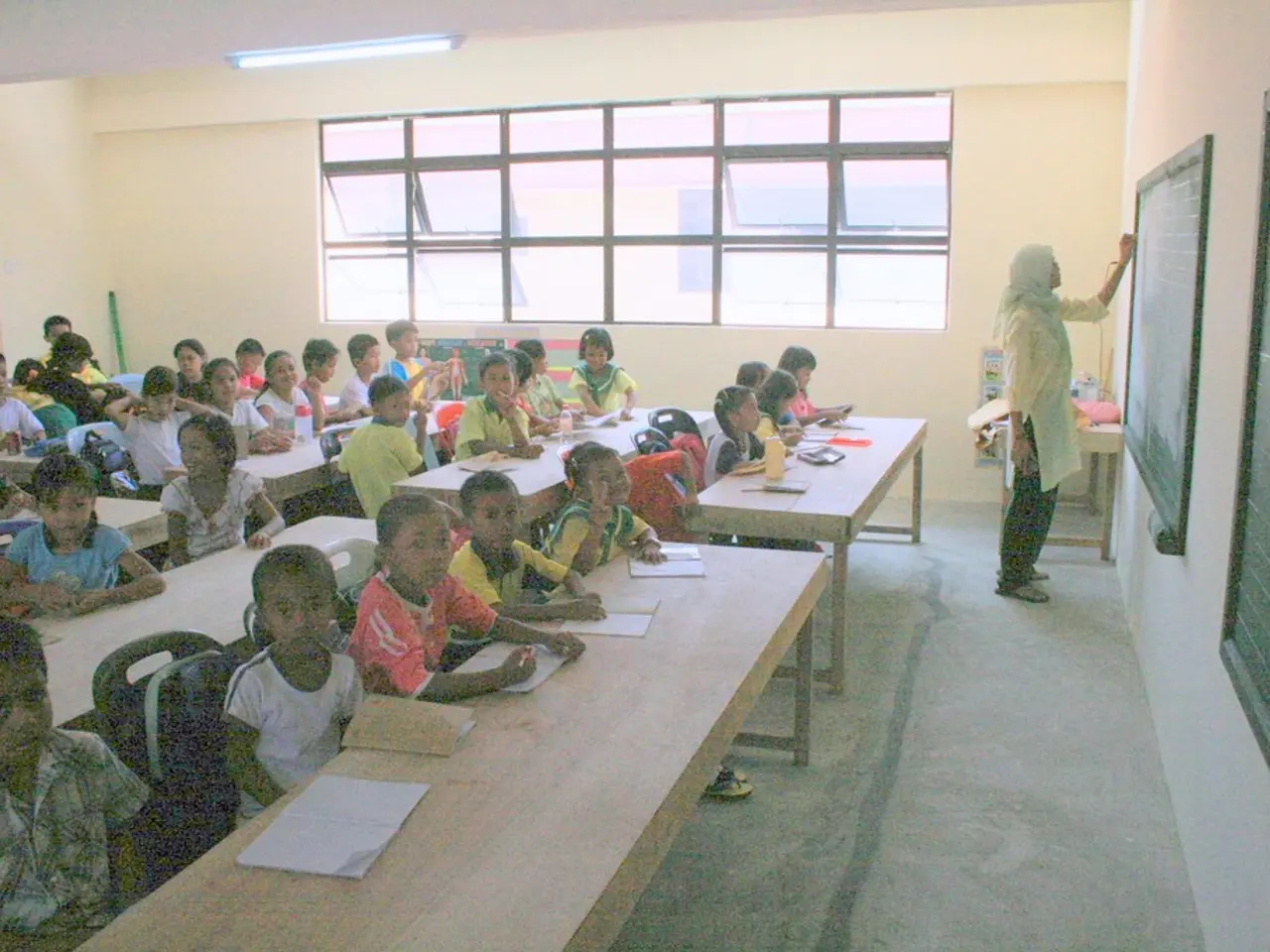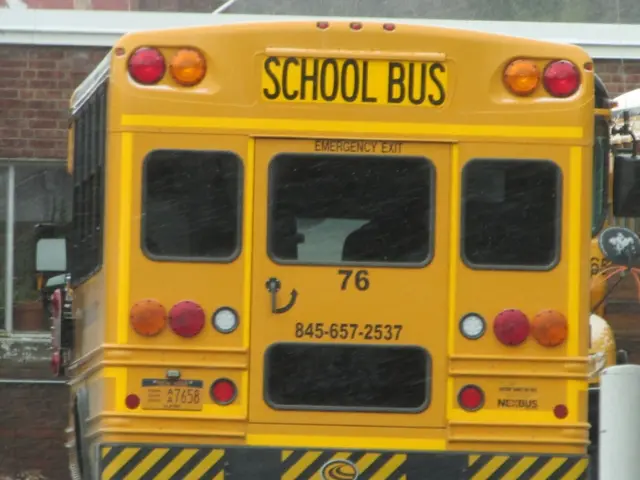Individualized Instruction in Special Education: Tailoring Learning Methods for Every Pupil
In the ever-evolving landscape of education, the latest technologies and techniques are making a significant impact on special education. These advancements, centred around **artificial intelligence (AI), virtual reality (VR), augmented reality (AR), and assistive technologies**, are offering a range of benefits tailored to students with special needs.
**Artificial Intelligence (AI) and Machine Learning** are at the forefront of this revolution, providing highly personalized and adaptive learning experiences. AI customizes lessons and paces according to each student's unique needs, offering smart tutoring systems, real-time feedback, and predictive analytics that identify learning gaps and suggest targeted interventions. AI also supports multimodal learning, using combinations of text, audio, video, and interactive elements to match diverse learning styles. These technologies can automate grading and give immediate, individualized feedback, which is crucial for continuous improvement.
**Virtual Reality (VR) and Augmented Reality (AR)** are creating immersive and interactive environments that help special needs students, particularly those with autism or sensory processing challenges, to develop social skills and academic abilities. These technologies engage students in safe, controlled simulations that can be personalized to their learning pace and preferences.
**Assistive Technologies** continue to enhance accessibility. These include speech-generating devices, mobility aids, reading software, eye-tracking devices for students with limited mobility, brain-computer interfaces for communication, and wearable devices that monitor emotional states and stress levels. These tools help create inclusive learning environments and support students’ participation and independence.
**Differentiated Instruction Techniques** are also being integrated, enabling educators to tailor content, processes, products, and learning environments. Arts integration, for example, is being used to cater to diverse learning styles and abilities.
The benefits for students with special needs are numerous. **Personalization and engagement** are increased as AI and multimodal content cater to individual learning preferences and needs. **Real-time feedback and evaluation** help students understand their progress and areas needing improvement. **Enhanced accessibility** is achieved as assistive technologies remove barriers caused by disabilities, enabling more independence and participation. **Improved social and emotional skills** are supported through VR/AR and wearable devices that aid emotional regulation and social interaction practice. **Inclusivity and equity** are upheld as these technologies and techniques support diverse learners, fostering an inclusive educational environment respecting equity and diversity.
Integrating students with disabilities into mainstream classes using technology typically has positive outcomes for the students. The University of West Alabama, for instance, offers an online teaching degree program that focuses on technology for special education teachers. Degrees offered include M.A. Teaching, M.Ed. High School Education, M.Ed. Physical Education, and M.Ed. Special Education, among others.
The Individuals with Disabilities Education Act governs the provision of early intervention, special education, and related services to over 6.5 million eligible individuals. The outlook for special education teachers is good, with a predicted national increase of 8% in employment by 2026 and a 2017 median pay of $58,980. For those interested in pursuing a career in this field, resources like "The Making the Grade: A Guide to In-Demand Teaching Careers" can help navigate teaching jobs in high demand.
In conclusion, these advances are creating a more inclusive, effective, and personalized learning ecosystem that better supports the academic growth and well-being of students with special needs while assisting educators with innovative tools and data-driven insights.
[1] Source: www.edutopia.org/blog/personalized-learning-special-education-kristen-morris [2] Source: www.brookings.edu/research/the-future-of-technology-in-special-education/ [3] Source: www.edutopia.org/blog/the-role-of-technology-in-special-education-jennifer-katz [4] Source: www.ncrel.org/sdrs/areas/issues/leadership/technology/index.asp
Education and self-development are being significantly facilitated by technology. Artificial Intelligence (AI) and Machine Learning, for instance, are transforming learning experiences by offering personalized and adaptive lessons, smart tutoring systems, real-time feedback, and predictive analytics that target learning gaps.
Virtual Reality (VR) and Augmented Reality (AR) are revolutionizing education for special needs students, particularly those with autism or sensory processing challenges, by creating immersive and interactive environments to foster social skills and academic abilities.




